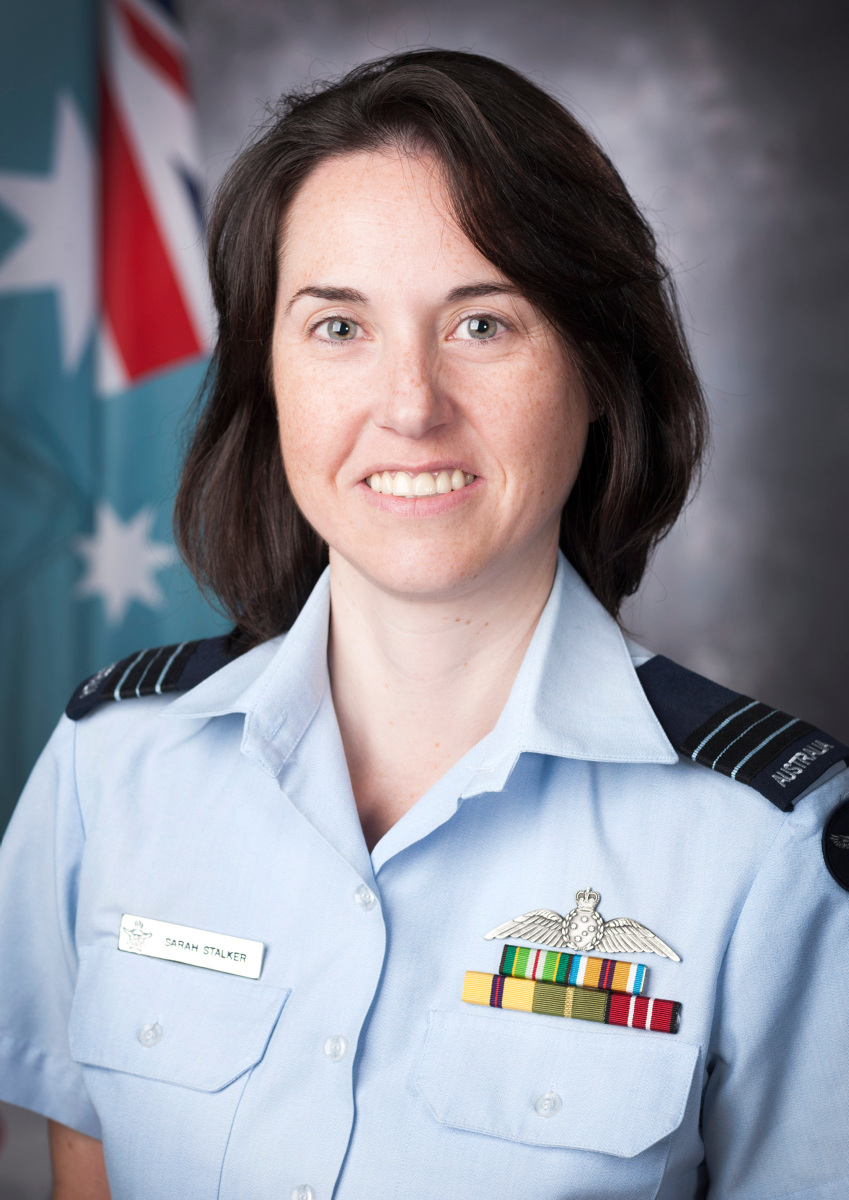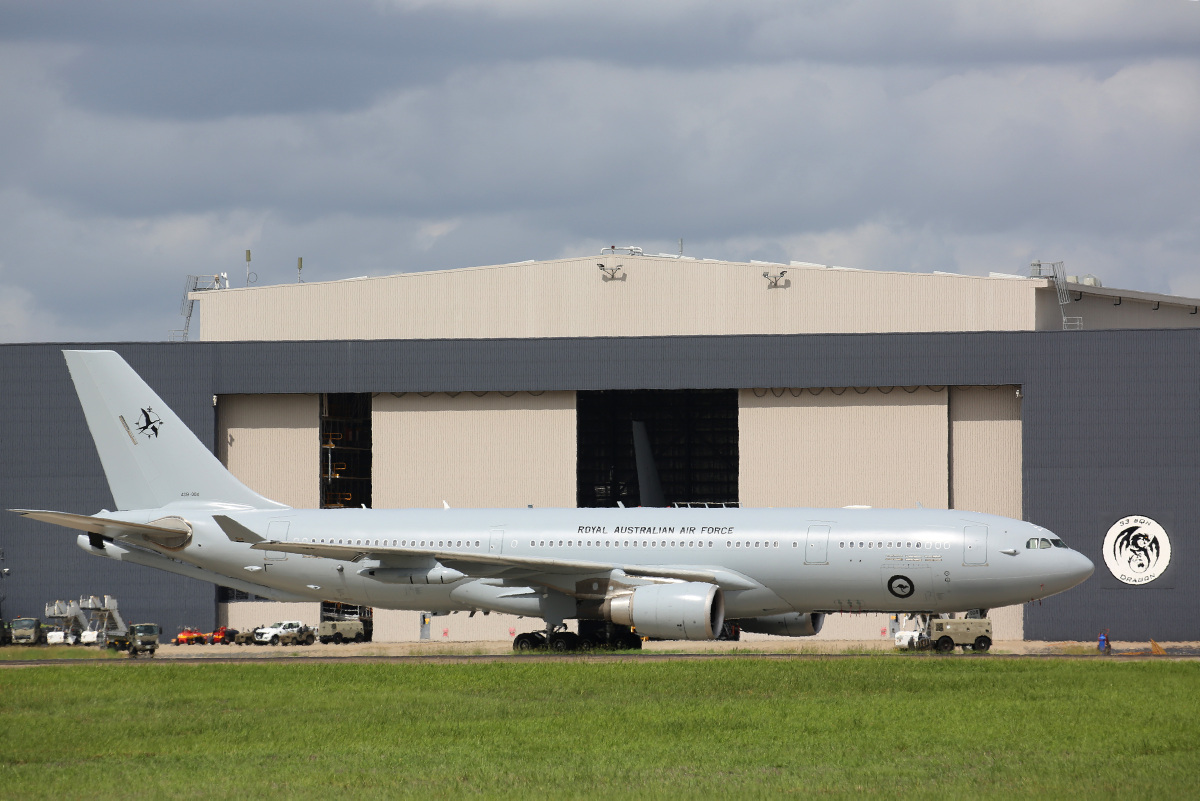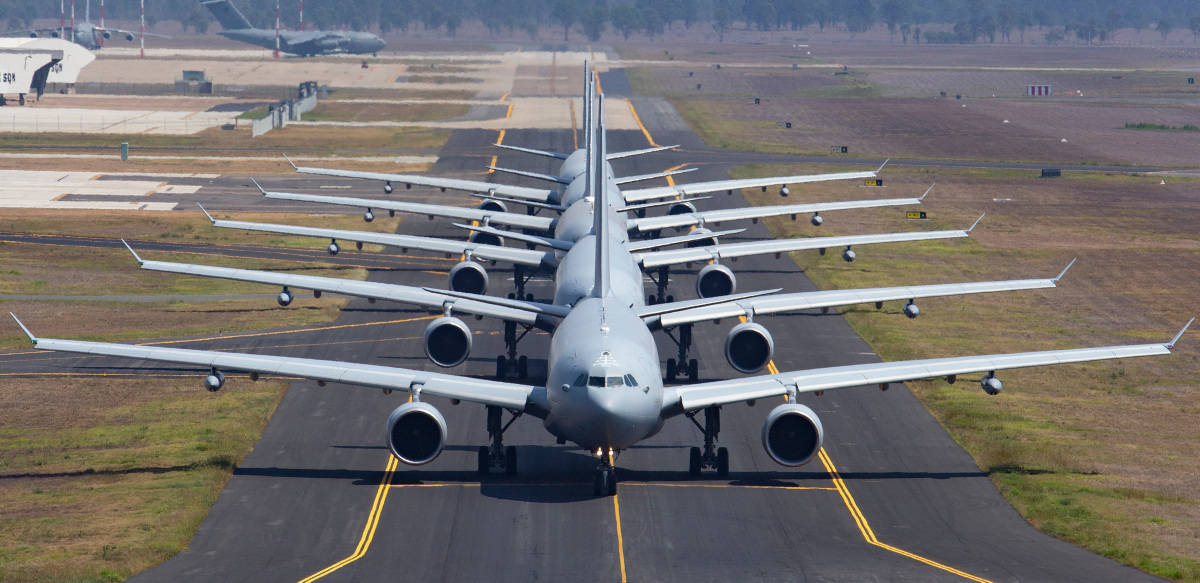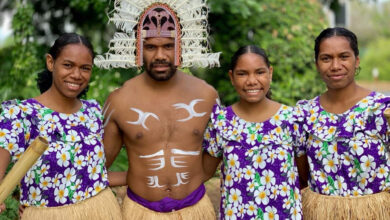Over two decades, Wing Commander Sarah Stalker has followed an nontraditional career path for an Air Force aviator.
In December 2018, that path led her to become the first female Commanding Officer of an Air Force flying squadron in ten years.
Commenting on her breadth of experience, Wing Commander Stalker said each posting has offered a new perspective.
“As you go through your career you build resilience and a broader understanding of the Defence organisation,” Wing Commander Stalker said.
“No matter how varied your roles or deployments may look, each one has given you another layer of experience.”
Starting out as a Navigator on the C-130H Hercules in 2000, her posting path has included stints at the Joint Electronic Warfare and Operational Support Unit (JEWOSU) and Defence Space Coordinating Office at Air Force Headquarters.
“Operator experience – where you’re bringing experience and perspective from operational squadron into the wider Air Force – was often needed in these roles,” Wing Commander Stalker said.
She has also taught as an instructor, completed a Masters of Systems Engineering and was once the Career Manager for Squadron Leader pilots.
Wing Commander Stalker recently was deployed as the Air Component Commander in the Middle East, managing C-130J and C-17A missions throughout the theatre of operations; and later served as Staff Officer VIP Operations supporting No. 34 Squadron missions in Canberra.
On her selection as Commanding Officer of No. 33 Squadron at RAAF Base Amberley, she underwent training as an Air Refuelling Operator in a KC-30A Multi-role Tanker Transport (MRTT).
Reflecting on the career path that led her to her command at No. 33 Squadron, Wing Commander Stalker said having inspirational role models is important, as well as the ability to see a different point of view.
“As women, we can see things differently when we are in meetings or making decisions,” Wing Commander Stalker said.
“I’ve found that this difference in opinion is valued across Air Force. Thinking outside of the box is important in tackling problems.”

Official portrait of Squadron Leader Sarah Stalker from 2013. File image: Defence

KC-30A Multi Role Tanker Transport aircraft A39-004 sits on the No. 33 Squadron tarmac. Image: Defence
As Commanding Officer of No. 33 Squadron, she oversees operations by a fleet of seven KC-30A MRTTs, which provide an essential air-to-air refuelling capability for the RAAF.
The squadron can also conduct strategic airlift of passengers and cargo, as well as for other Government agencies or even other defence forces.
During Wing Commander Stalker’s command, her squadron has airlifted civilian firefighters for bushfire operations, transported Fijian peacekeepers for United Nations missions, and conducted refuelling operations for Coalition strike aircraft in the Middle East.
With at least another year left as Commanding Officer of No. 33 Squadron, Wing Commander Stalker admits her future path might be just as complex as her past.
But she remains enthusiastic about sharing her experiences and perspective with the next generation of female aviators to come.
“There are role models everywhere, especially in the female aviation community, who are actively encouraging and empowering young women,” Wing Commander Stalker said.

St Mary’s students Jessica Payne and Sahana Anthony
International Women’s Day on 8 March, is a global day celebrating the social, economic, cultural and political achievements of women – while also marking a call to action for accelerating gender equality.
Queensland Women’s Week recognises and celebrates the achievements of Queensland’s women and girls and is held from 6 to 15 March.
One of the events being held in Ipswich is a Girls in Areospace STEM Day.
The Queensland Rocketry Society, in partnership with It’s Rocket Science Adventures, invited 300 female secondary school students from the Ipswich and western suburbs region to participate in a full day of rocketry design, building and launching rockets over 100 metres into the air on the St Mary’s College school oval.
The event aims to use flight and space science to inspire female leadership and participation in STEM careers, particularly in the aviation and aerospace sectors which are forecast to grow rapidly with Australia’s involvement in NASA’s Moon to Mars program.
Initiatives to encourage women in Air Force jobs
Project WINTER (Women In Non-Traditional Roles) is specifically aimed at increasing the participation and support of women in Air Force jobs where they represent less than 7% of that workforce.
Graduate Pilot Scheme was introduced to attract women to become Air Force pilots. The scheme is currently available to women studying a Bachelor of Aviation (BAv). Visit Defence Jobs to learn more.
Air Force Sponsored Flying Scholarships are awarded to two young women under the age of 24 each year. The two Air Force sponsored scholarships are designed to assist young women with the costs of pursuing a career in aviation. To find out how to apply, visit the Australian Women Pilots’ Association.
Accreditation as a Breastfeeding Friendly Workplace by the Australian Breastfeeding Association makes the Air Force the first military organisation in the world to achieve such accreditation, and demonstrates our commitment to and support for women returning to work following maternity leave.


